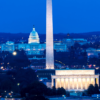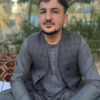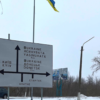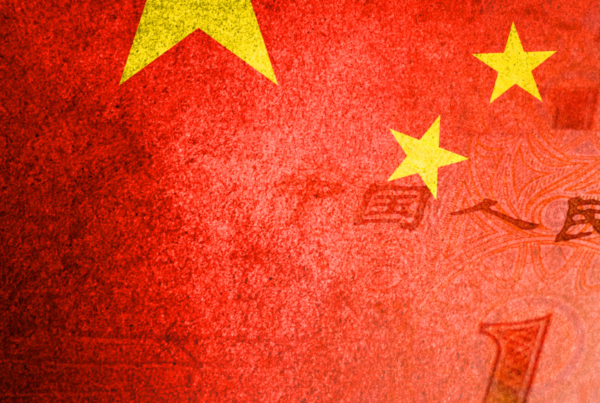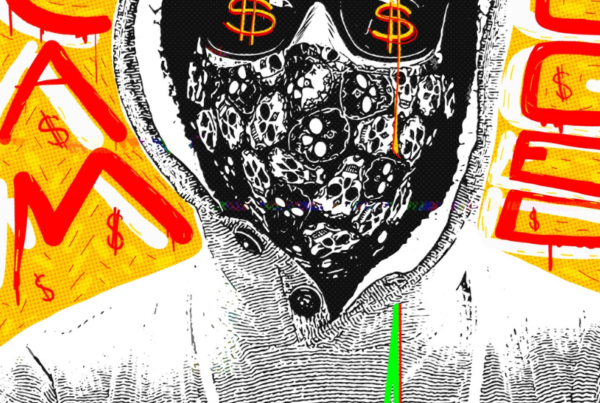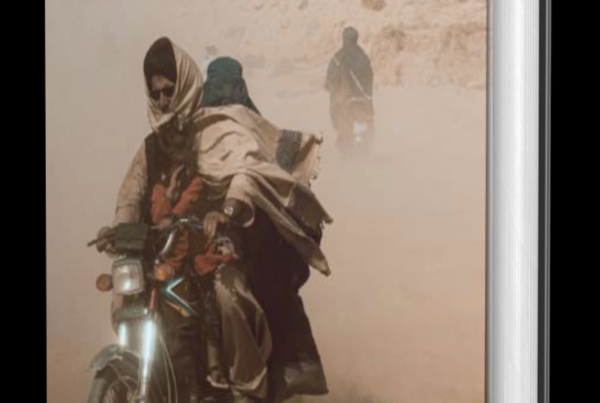For Bishop Abraham Yel Nhial, who serves at the Aweil Diocese of the Episcopal Church of South Sudan, life has come full circle.
As a child, he was entangled in the brutal civil war in Sudan, forced to flee his home and travel on foot in search of safety, persistently under enemy fire from the predominantly Muslim population further north. Now, almost four decades later, the spiritual leader is devoted to helping the same people who dehumanized his family and fired bullets at him as a small boy.
“Muslims, Christians, those from the north and south – we are one, united. But everyone is hurting, everyone is starving,” Bishop Abraham tells me on a hot summer afternoon in a café on the edges of Washington, DC. “This is very hard to draw attention to, but people are very vulnerable; the outside needs to know what is happening. Otherwise, we suffer alone. The whole country suffers alone.”
He’s in town, in the capital of the capital of the free world, trying desperately to find someone – anyone – to remember the plight of the refugees and famished peoples in his home of South Sudan.
Abraham’s resilience is unwavering. After all, it has been a long and arduous road marred by endless conflicts and chaos for the bishop to be here in this moment.
In 1983, a civil war ignited in Sudan forever altering the lives of Sudanese boys and men. Government forces in the nation’s north fought against the southern insurgency, the Sudanese People’s Liberation Army (SPLA), forcing thousands of boys into its ranks.
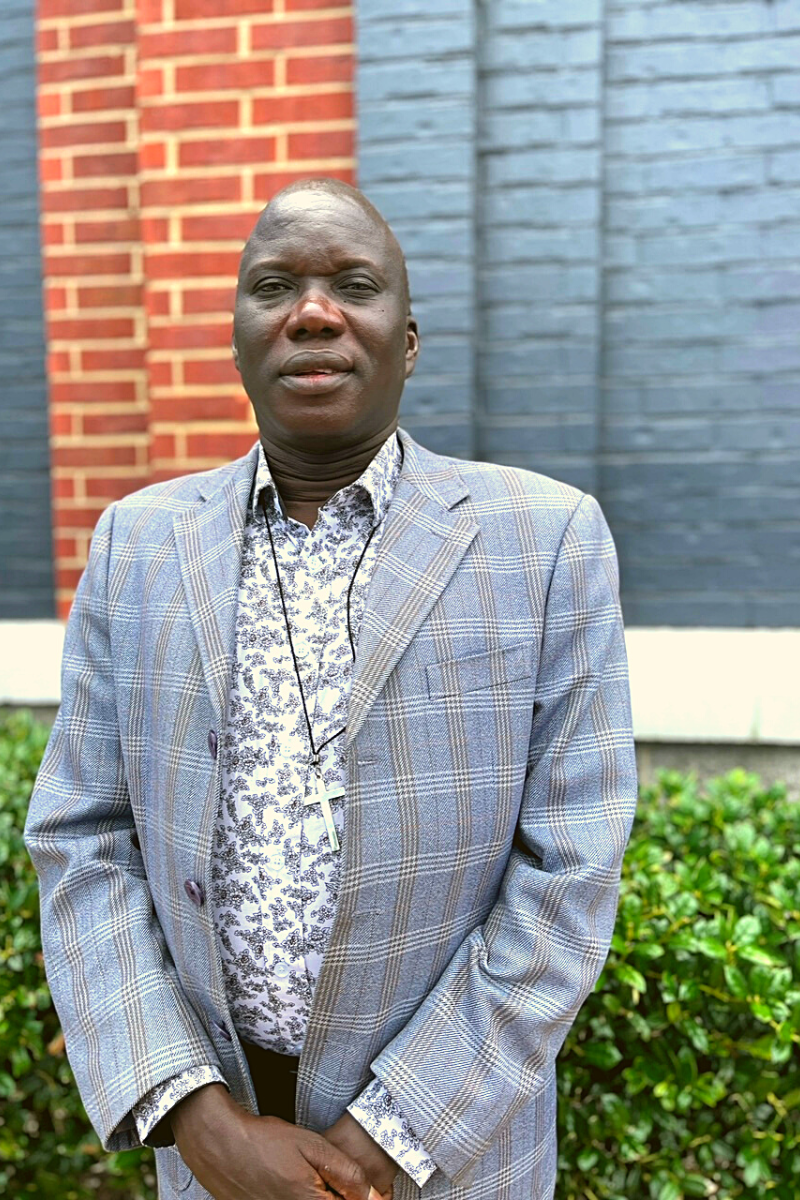
The violence intensified in the late 1980s, driving more than 20,000 boys, some as young as six, away from their homes and families. The threat of being abducted or killed as a child soldier loomed heavy, prompting more than 20,000 children to walk more than 1,000 miles in search of safety. Over 18 months, the frightened boys crossed three countries without adult support or means of aid, moving through Ethiopia and then on to the Kakuma refugee camp in Kenya.
The dangerous, heat-stricken route claimed at least half of them. Hundreds drowned crossing Ethiopia’s bloated Gilo River, hundreds more were slain by crocodiles or hippos, and thousands were shot dead by pursuing government soldiers. The boys who made it to the tattered tents became known as the “Lost Boys of Sudan”. Many came of age in the resource-drained grounds without parents, a place to call home, or barely a scrap to eat.
Oddly, Abraham remembers that it wasn’t a political figure or aid group that initially spotlighted what was happening to them. Instead, it was Sudanese American and NBA star Manute Bol (the tallest in history at 7’7). At the height of his career, the late Manute – he died in 2010 at age 47 of kidney failure – risked his own life to visit the dilapidated facilities and tell the world of the trial and trauma.
“This was one of the key moments in getting help and food air drops for us,” Abraham recalls. “He was the first guy to go to Congress and ask for help. Manute put the Lost Boys on the map at a time when so many were dying of starvation. He saved the lives and the health of so many.”
In 2001, around 4,000 Lost Boys were brought to the United States for a second lease on life. Abraham was one of those. He earned a Bachelors’ and Masters’ degree in Theology. (His miraculous tale of survival was entwined into a leading character in the 2014 Warner Bros, Reese Witherspoon-starring film “The Good Lie”).
In 2005, a fragile peace deal between the North and South was brokered, bringing an end to the scalding conflict that had claimed more than two million lives. Later, Abraham heeded a higher calling and became one of the few Lost Boys to return to his bloodied homeland to seek out his long-lost loved ones and help others pick up the pieces of their broken lives.
“I want to give back because I was lucky enough to be protected, to come to America and receive an education,” he says thoughtfully. “America is a great nation because people of different faiths and cultures can live together. So why can’t we?”
In 2011, the predominantly Christian population in southern Sudan held a referendum in which the people voted overwhelmingly to break away from the north, fashioning the brand-new nation of South Sudan. Only the stability would be short-lived. Violence between ethnic groups quickly exploded into yet another civil war. For the past decade, South Sudan has been slapped with bouts of brutality and a staggering humanitarian crisis.
But, for Abraham, the protracted fighting is doubly devastating. His state of Aweil sits in the northwest pocket of South Sudan, bordering the region of Darfur, Sudan.
Darfur captured the hearts and minds of the international community in early 2003 when conflict broke out between rebel groups, namely the Sudan Liberation Movement (SLM) and the Justice and Equality Movement (JEM), pitted against Sudanese Government Forces, which they accused of persecuting Darfur’s non-Arab population.
The government side – led by dictator Omar al-Bashir and made up of military, police, and the Arabized militia group dubbed the Janjaweed – retaliated with a genocidal campaign against Darfur’s non-Arabs.
Nevertheless, blood continues to spill in gold-rich Darfur as the months transpire. A report released by the United Nations in June shows that half a million people in the Darfur region have been displaced in the recent resurgence of violence, propelled primarily by the chillingly familiar face of Arab militias laying waste to the homes and lives of the non-Arab populous.
It marks the deadliest flare since the conflict exploded almost two decades ago, with hundreds killed monthly. Nevertheless, UN Peacekeepers withdrew from the region at the end of 2020 after the long-standing mandate expired.
Omar Bashir remains behind bars, wanted by the International Criminal Court while still alleged to be pulling strings while under lock and key. Yet critics claim that the transitional government – born out of the 2019 coup – has done next to nothing to address the brewing turmoil in the west. What is so jarring about this impasse is not necessarily the authoritarianism rather the lack of overarching rule fueling hundreds of thousands more people left to fend for themselves with no backing from the capital in Khartoum.
Disputes over land, livestock, water access, and natural resources run rife. Families flee from place to place in panic, struggling to survive another day as medical clinics shutter, store shelves and homes are wiped clean by looters, and women are subject to unthinkable rape and sexual violence. The World Food Program (WFP) was forced to suspend operations there earlier this year after its warehouses in North Darfur were pillaged robbing millions of the food and nutrition they desperately needed.
Abraham dives deeper into an especially uncomfortable subject: the increase of modern slavery run rampant in the region. He speaks of the children kidnapped into the vestiges of forced sex and labor slavery, unable to escape.
“This happens a lot,” Abraham says, eyes cast down. “It is one of the problems.”
Sadly, one of the many problems.
Darfur today represents a power vacuum ripped open – only to be filled with self-styled, tribal militias armed and angry in the jostle for dominance.
Today, Darfur’s reigning heartache – haunted by the previous war that left two million homeless and 300,000 dead – has almost entirely faded from the limelight. Our attention has understandably drifted to other painful parcels of growing problems worldwide. There is the war in Ukraine, the looming threat of China, the remnants of a frenetic Afghanistan withdrawal, and economic hardship of inflation within our borders (also a growing security and humanitarian crisis).
Still, it is hard not to feel as though the whole world has turned its back on the victims and survivors of such unfathomable ethnic cleansing. The Darfur camps are pictures of misery and squalor, languishing without humanitarian assistance, and sometimes come under fire from merciless combatants. Subsequently, thousands of Darfurians flee across the ragged border into Aweil, South Sudan, each day.
Abraham’s dilemma in trying to support Darfurians as well as his own impoverished, hungry, and war-wracked population – compounded by the unprecedented drought covering swaths of sub-Saharan Africa – means the area is being pushed to the brink of collapse and desperation. South Sudan is already considered one of the worst places on the planet to be a child, with almost every infant suffering acute malnourishment. Moreover, the global assistance that once existed has dwindled into oblivion, stretched by the emergency demands of the Covid response, the war in Ukraine, and other catastrophes.
Nothing in this region comes easy, and endless war kills both quickly and slowly. Unfortunately, with such expansive and systemic problems, the situation in Darfur and South Sudan does not appear to have any end in sight.
Does anyone care? These wars are forgotten. These countries are too. War crimes are officially filed away to collect dust, and everyone is supposed to move on from them.
What has been the response from power players in Washington, DC, so far?
“The message we are hearing is that people want to stay away from giving help because of corruption,” Abraham admits. “But there is a way around this, to help, so it goes to the people.”
In Aweil, Abraham’s office is nothing more than a decrepit hut with a dirt floor. He hints at the laziness of top brass in international fields, abandoning the matter out of frustration rather than working diligently for a solution which he says comes down to vetting, protocols, and working with the right people.
“Imagine you are driving and realize you are going in the wrong direction,” Abraham continues. “Do you continue going down that road? Or do you turn around and find a better way?”
He lists a multitude of ways the international community could assist Aweil, from planting drought-resistant Moringa trees – highly valued for their edible parts and water purification – to helping the masses of displaced live beyond the “pieces of plastic” used for shelter.
Certainly, Abraham has witnessed much more than one should or could in a lifetime. He feels the persistent weight of anguish but refuses to give up hope of something better for the people of the north and the south, dedicating all his waking hours to helping and seeking help.
What is so exceptional about this man is his willingness to extend a hand to Darfurians, many of whom hail from the same lineage of an enemy that cost him his own childhood.
“We have been divided on religious bases, or where we come from. But we cannot continue like that,” Abraham stresses. “Regardless of the past, now, if you need help, I will try to give you everything you need.”
With sparse resources beyond the backing of close friends and family abroad, this famed Bishop has built a dozen primary and secondary schools as well as a pastoral college in the Aweil Diocese, a considerable feat given that protracted conflict continues in and around the world’s “newest country.”
Beyond giving the gift of quality education in a time of uncertainty and darkness, Abraham works tirelessly to mentor youth, bolster orphanages and offer shelter to children relegated to the streets. It’s the sort of vocation that can never be finished, and one can never really be content despite the thousands of lives saved.
In his moments of memory and pain, Abraham still finds solace in the Bible, reminded of the central tenant that generosity yields an amazing crop, and when we refresh others through giving, we are refreshed ourselves.
“As Luke 6:38 says, ‘Give, and it will be given to you,'” he reminds me with a flashing smile. “As Christians, as humans, it is not enough to love your neighbor as yourself. You should want to love your enemies too and pray for your enemies.”



